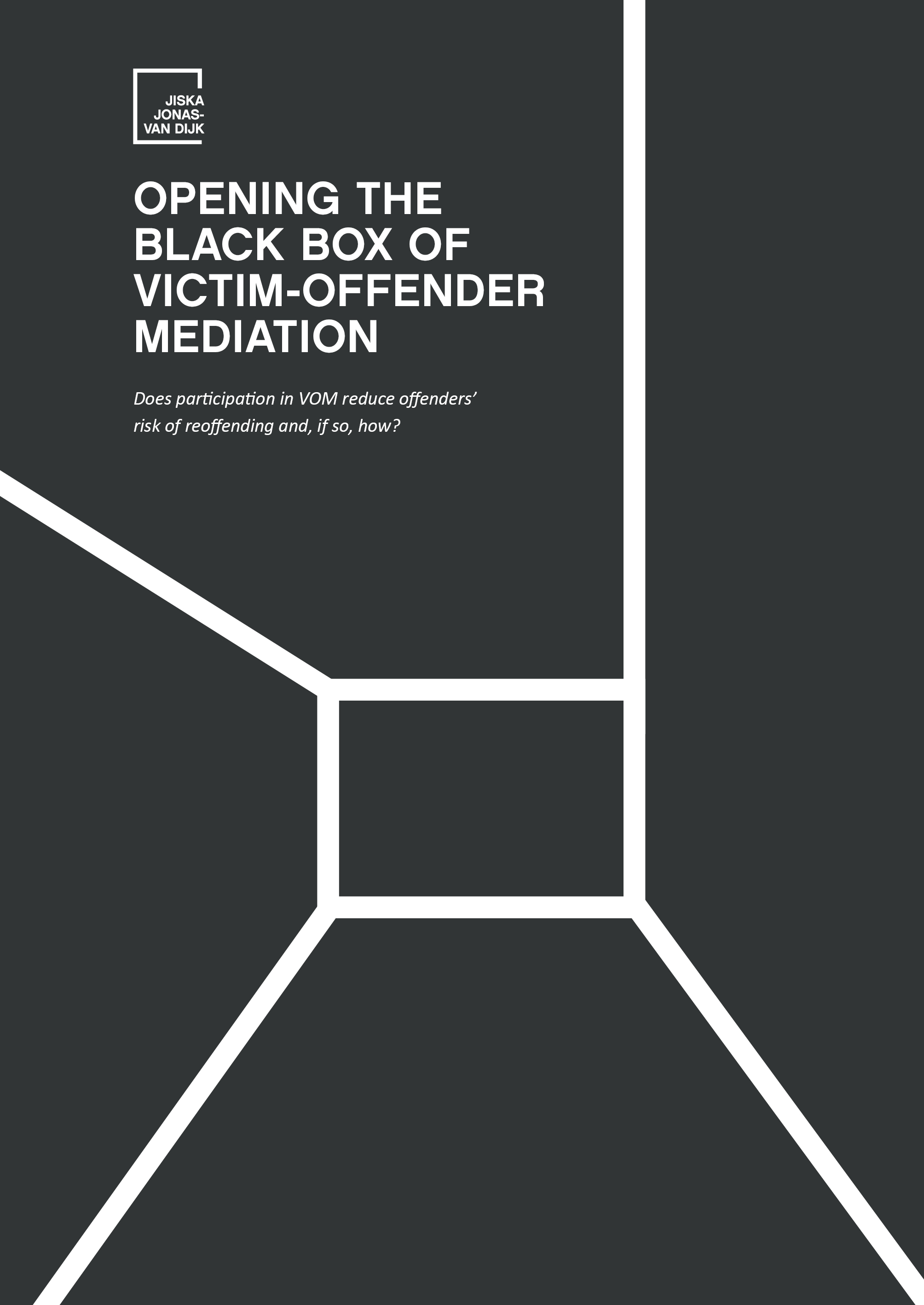Opening the black box of victim-offender mediation
Supervisors: Prof.dr. Hans Nelen (Maastricht University), prof.dr. Jacques Claessen (Maastricht University) and dr. Sven Zebel (UTwente)
Keywords: Restorative justice, victim-offender mediation, recidivism, psychological impact, working mechanisms.
¨Opening the black box of victim-offender mediation¨
Victim-offender mediation (VOM) in criminal cases is a growing judicial practice in Europe and abroad. In VOM victim and offender have a conversation in presence of a trained mediator. This process can help victims to recover and offenders to take responsibility, make amends and decrease their risk of reoffending. Despite the demonstrated favorable link between VOM and recidivism, no empirical research exists that has addressed why and how participation in VOM reduces reoffending compared to non-participation. This dissertation aimed to open this ‘black-box’ of victim offender mediation and to unravel how and why participation in mediation is related to a lower risk of reoffending. It examined if participation in Dutch mediation practices is related to a lower risk of reoffending, which psychological changes might underly this behavior change and which elements of mediation might explain these outcomes. Using different study designs, resulting in both quantitative and qualitative data, this dissertation offered important new insights into the impact of mediation on offenders.
The studies showed that the relation between participation in mediation and a lower risk of reoffending is indeed (partly) explained the mediation process. Before, it was unknown to what extent this relation was explained by the mediation process and a self-selection bias. Due to the voluntary nature of mediation offenders who participate might have different criminogenic profile compared to offenders unwilling to participate. These differences might account for the effects found. In addition, this dissertation showed that sanctions imposed after mediation are different compared to cases in which no mediation process started. This difference in sanction could offer an alternative explanation for a lower risk of reoffending. However, this dissertation showed that this difference in sanctioning is not the explaining factor. There is something in the mediation process that is related to a lower risk of reoffending.
The question that follows is what the psychological impact of mediation on offenders is that could possibly explain a lower risk of reoffending. The studies in this thesis showed that offenders who participate in mediation have higher feelings of guilt and shame, take more responsibility, have more victim empathy, are more aware of their moral failure and feel less awkward to meet their victim in the future. Guilt, empathy and responsibility taking all have been linked to pro-social and less reoffending behavior.
This thesis also unraveled elements of the mediation process that might explain this psychological change: fundamental conditions (mediator neutrality, preparation and voluntary participation) and working mechanisms (humanizing impact, offering a learning opportunity, and a constructive dialogue with the victim).
Although limitation should be taken into account, the studies in this dissertation made several cracks in the black box of mediation. More insight is given into how the mediation process might have a psychological impact on the offender that could possibly explain a lower risk of reoffending. Concrete practical recommendations could be formulated based on these outcomes.
